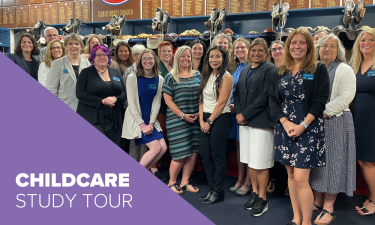How healthy a person is often has a lot to do with their educational attainment level.
The Spokane Regional Health District’s 2012 Health Inequities in Spokane County study shows that those living without a high school diploma in Spokane County have a 46 percent chance of living in poverty, which leads to unhealthy lifestyles. Obtaining that post-secondary degree is a big way people can stay out of poverty, live healthier lives and obtain good jobs.
That’s why Priority Spokane, an affiliate of Greater Spokane Incorporated, is working to increase educational attainment to improve community health in Spokane County.
Priority Spokane is one of 12 finalists nationwide in the running for a Roadmaps to Health grant from the Robert Wood Johnson Foundation that focuses on community health. Priority Spokane’s application is unique in that it doesn’t focus on one health issue, but rather education as a determinant of health outcomes.
So what is the community doing to increase educational attainment?
Several high schools in the region have community truancy boards that aim to keep students from the juvenile court system, and Community Attendance Support Teams – or CASTs – are forming in the middle schools in Spokane with the same goal.
These truancy boards have served as a model for 18 other states in the nation.
Alignment is also crucial for educational attainment. The Girl Scouts, for example, aligns its curriculum with state education standards and even begins to introduce various career choices to children as young as five years old. Full-day kindergarten has already been implemented in Spokane Public Schools as well.
Our Workforce and Education programs introduce students and teachers to career opportunities through Teaching the Teachers, Business AfterSchool, Work 101 and more.
The Board of Trustees of Greater Spokane Incorporated recently voted to support a regional vision for 60 percent of our adult population in Spokane County to attain post-secondary education by 2025. Currently, the number hovers around 42 percent.
In order to meet this goal, the community must continue the programs already mentioned, as well as build mentorship programs, include the faith-based community, achieve income growth and much more.
If we want to create a culture of health – which is the vision of the Robert Wood Johnson Foundation – we must increase educational attainment. The community is working to do just that.





